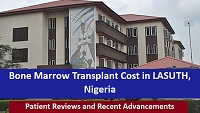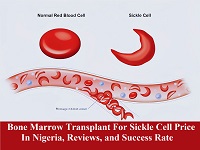
Sickle Cell Disease and Bone Marrow Transplant in Nigeria
In Nigeria, every year, around 1,00,000 kids are born with Sickle cell Disease; Nigeria contributes the most significant number of sickle cell disease patients in the world. Although about 75% of kids die from SCD, WHO says if Nigeria provides low-cost diagnosis and treatments, the death can be reduced by 70%. Sickle cell Disease is a life-threatening disease; it is an inherited blood disorder. The Sickle cells stop red blood cells from transferring oxygen to the body, which brings a condition to the body. Therefore, the government is taking many new initiatives to fight Sickle Cell Disease in Nigeria. Sickle Cell Disease treatment cost in Nigeria is around $55000. In this article, you will read about Sickle Cell Disease in Nigeria and the treatment of SCD using a Bone Marrow Transplant.




